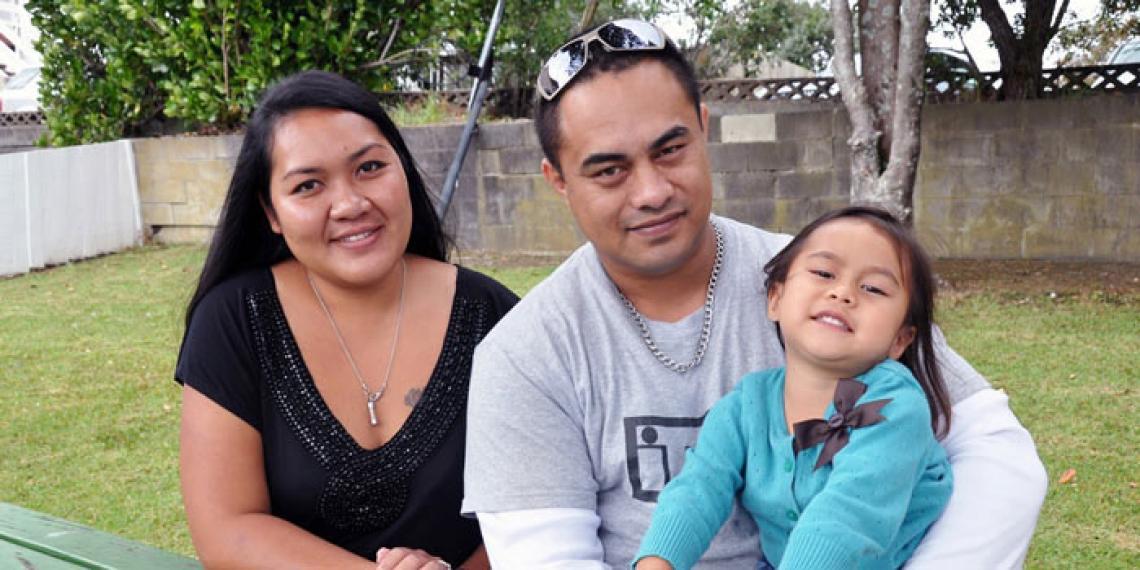You are here
Keeping the family intact

Ratree and Clifton originally sought assistance from The Salvation Army when their finances were in a state of collapse. Ratree had discovered she was legally responsible for a large amount of credit card debt, run-up by her former husband after their relationship had ended.
Debt payments, rent and utilities ate up all of the family’s disposable income, leaving nothing for food. Ratree approached her local Salvation Army Community Ministries, which provided the family with food parcels until a social worker could help negotiate manageable debt repayments.
The social worker provided much-needed emotional support and guidance, says Ratree, during her most desperate times.
Ratree and her family also regularly attend The Salvation Army’s weekly community meal. ‘It gives us a chance to take them out because we can’t afford to do very much for the kids,’ says Ratree.
Despite rent consuming around 70 per cent of the family of five’s income, they are now close to paying off all their debt. Life is not easy—there is $85 a week left over to feed two adults and three children—but they are looking forward to life free from the shackles of debt.
But Ratree and Clift on say the most dramatic change in their lives came through a course designed by The Salvation Army. The Positive Lifestyle Programme aims to raise self-awareness, enabling clients to identify and overcome personal difficulties before they become major problems.
The 10-week course covers topics such as dealing with depression, anger, grief and stress, which is an ever-present and potentially damaging aspect of life for most poor families. The programme works toward building self-esteem and assertiveness and developing goal-setting skills.
Ratree says before taking part in the programme, her relationship was under a great deal of pressure, and arguments were common. Both Clifton and Ratree say the programme saved their relationship and the benefits, especially to their children, have been immense.
North Shore Community Ministries manager Dee McColl says the programme has developed into one of her staff’s most powerful tools in getting clients to resolve their own problems and become increasingly independent.
‘It’s proven to be very beneficial—life changing,’ she says.
‘There’s actually a huge paradigm shift from making poor decisions to identifying these behaviours and what might be behind them, and moving on to making positive decisions for themselves and their families—it’s quite remarkable to see.’